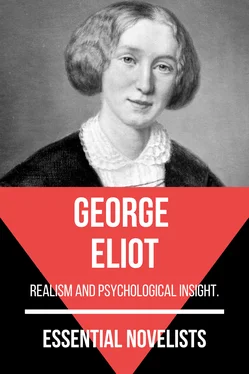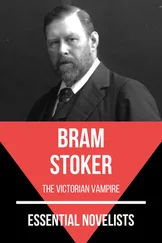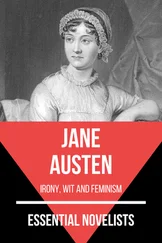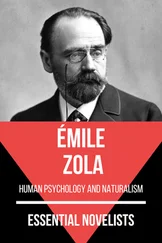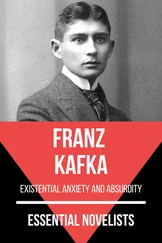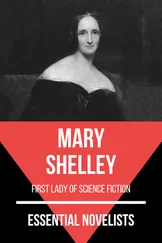Since things were going on so pleasantly, Mr. Casaubon's statement that his labors in the Library would be suspended for a couple of days, and that after a brief renewal he should have no further reason for staying in Rome, encouraged Will to urge that Mrs. Casaubon should not go away without seeing a studio or two. Would not Mr. Casaubon take her? That sort of thing ought not to be missed: it was quite special: it was a form of life that grew like a small fresh vegetation with its population of insects on huge fossils. Will would be happy to conduct them—not to anything wearisome, only to a few examples.
Mr. Casaubon, seeing Dorothea look earnestly towards him, could not but ask her if she would be interested in such visits: he was now at her service during the whole day; and it was agreed that Will should come on the morrow and drive with them.
Will could not omit Thorwaldsen, a living celebrity about whom even Mr. Casaubon inquired, but before the day was far advanced he led the way to the studio of his friend Adolf Naumann, whom he mentioned as one of the chief renovators of Christian art, one of those who had not only revived but expanded that grand conception of supreme events as mysteries at which the successive ages were spectators, and in relation to which the great souls of all periods became as it were contemporaries. Will added that he had made himself Naumann's pupil for the nonce.
"I have been making some oil-sketches under him," said Will. "I hate copying. I must put something of my own in. Naumann has been painting the Saints drawing the Car of the Church, and I have been making a sketch of Marlowe's Tamburlaine Driving the Conquered Kings in his Chariot. I am not so ecclesiastical as Naumann, and I sometimes twit him with his excess of meaning. But this time I mean to outdo him in breadth of intention. I take Tamburlaine in his chariot for the tremendous course of the world's physical history lashing on the harnessed dynasties. In my opinion, that is a good mythical interpretation." Will here looked at Mr. Casaubon, who received this offhand treatment of symbolism very uneasily, and bowed with a neutral air.
"The sketch must be very grand, if it conveys so much," said Dorothea. "I should need some explanation even of the meaning you give. Do you intend Tamburlaine to represent earthquakes and volcanoes?"
"Oh yes," said Will, laughing, "and migrations of races and clearings of forests—and America and the steam-engine. Everything you can imagine!"
"What a difficult kind of shorthand!" said Dorothea, smiling towards her husband. "It would require all your knowledge to be able to read it."
Mr. Casaubon blinked furtively at Will. He had a suspicion that he was being laughed at. But it was not possible to include Dorothea in the suspicion.
They found Naumann painting industriously, but no model was present; his pictures were advantageously arranged, and his own plain vivacious person set off by a dove-colored blouse and a maroon velvet cap, so that everything was as fortunate as if he had expected the beautiful young English lady exactly at that time.
The painter in his confident English gave little dissertations on his finished and unfinished subjects, seeming to observe Mr. Casaubon as much as he did Dorothea. Will burst in here and there with ardent words of praise, marking out particular merits in his friend's work; and Dorothea felt that she was getting quite new notions as to the significance of Madonnas seated under inexplicable canopied thrones with the simple country as a background, and of saints with architectural models in their hands, or knives accidentally wedged in their skulls. Some things which had seemed monstrous to her were gathering intelligibility and even a natural meaning: but all this was apparently a branch of knowledge in which Mr. Casaubon had not interested himself.
"I think I would rather feel that painting is beautiful than have to read it as an enigma; but I should learn to understand these pictures sooner than yours with the very wide meaning," said Dorothea, speaking to Will.
"Don't speak of my painting before Naumann," said Will. "He will tell you, it is all pfuscherei, which is his most opprobrious word!"
"Is that true?" said Dorothea, turning her sincere eyes on Naumann, who made a slight grimace and said—
"Oh, he does not mean it seriously with painting. His walk must be belles-lettres. That is wi-ide."
Naumann's pronunciation of the vowel seemed to stretch the word satirically. Will did not half like it, but managed to laugh: and Mr. Casaubon, while he felt some disgust at the artist's German accent, began to entertain a little respect for his judicious severity.
The respect was not diminished when Naumann, after drawing Will aside for a moment and looking, first at a large canvas, then at Mr. Casaubon, came forward again and said—
"My friend Ladislaw thinks you will pardon me, sir, if I say that a sketch of your head would be invaluable to me for the St. Thomas Aquinas in my picture there. It is too much to ask; but I so seldom see just what I want—the idealistic in the real."
"You astonish me greatly, sir," said Mr. Casaubon, his looks improved with a glow of delight; "but if my poor physiognomy, which I have been accustomed to regard as of the commonest order, can be of any use to you in furnishing some traits for the angelical doctor, I shall feel honored. That is to say, if the operation will not be a lengthy one; and if Mrs. Casaubon will not object to the delay."
As for Dorothea, nothing could have pleased her more, unless it had been a miraculous voice pronouncing Mr. Casaubon the wisest and worthiest among the sons of men. In that case her tottering faith would have become firm again.
Naumann's apparatus was at hand in wonderful completeness, and the sketch went on at once as well as the conversation. Dorothea sat down and subsided into calm silence, feeling happier than she had done for a long while before. Every one about her seemed good, and she said to herself that Rome, if she had only been less ignorant, would have been full of beauty: its sadness would have been winged with hope. No nature could be less suspicious than hers: when she was a child she believed in the gratitude of wasps and the honorable susceptibility of sparrows, and was proportionately indignant when their baseness was made manifest.
The adroit artist was asking Mr. Casaubon questions about English polities, which brought long answers, and, Will meanwhile had perched himself on some steps in the background overlooking all.
Presently Naumann said—"Now if I could lay this by for half an hour and take it up again—come and look, Ladislaw—I think it is perfect so far."
Will vented those adjuring interjections which imply that admiration is too strong for syntax; and Naumann said in a tone of piteous regret—
"Ah—now—if I could but have had more—but you have other engagements—I could not ask it—or even to come again to-morrow."
"Oh, let us stay!" said Dorothea. "We have nothing to do to-day except go about, have we?" she added, looking entreatingly at Mr. Casaubon. "It would be a pity not to make the head as good as possible."
"I am at your service, sir, in the matter," said Mr. Casaubon, with polite condescension. "Having given up the interior of my head to idleness, it is as well that the exterior should work in this way."
"You are unspeakably good—now I am happy!" said Naumann, and then went on in German to Will, pointing here and there to the sketch as if he were considering that. Putting it aside for a moment, he looked round vaguely, as if seeking some occupation for his visitors, and afterwards turning to Mr. Casaubon, said—
"Perhaps the beautiful bride, the gracious lady, would not be unwilling to let me fill up the time by trying to make a slight sketch of her—not, of course, as you see, for that picture—only as a single study."
Читать дальше
